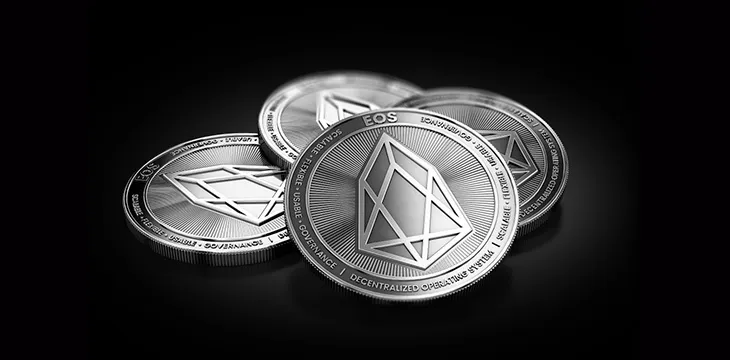|
Getting your Trinity Audio player ready...
|
The developer of EOS has acknowledged claims of collusion in the generation of EOS blocks, but remains confident in the cryptocurrency’s future.
In a blog post, Block.one CEO Brendan Blumer said, “We are aware of some unverified claims regarding irregular block producer voting, and the subsequent denials of those claims.”
Allegations surfaced last week of cryptocurrency exchange Huobi voting block producer candidates and in turn being voted by these candidates, which supposedly involved “pay-offs that occur amongst the Chinese BP [block producer] community,” according to Twitter user Maple Leaf Capital, who linked a spreadsheet as evidence. Huobi has denied the accusation.
Recently, an internal excel document from Huobi (one of the BPs) is circulating in the Chinese community. This file documents the collusion, mutual voting, and pay-offs that occur amongst the Chinese BP community. I’ m working on getting the file.
— MapleLeafCap 👟🔫📜🤖 (@MapleLeafCap) September 26, 2018
Under EOS’ proof-of-stake system, 21 candidates are voted to produce blocks, where each EOS token allows one vote.
Blumer was unfazed by the claims of vote-buying, which goes against the EOS Constitution, explaining that Block.one, along with other EOS holders, would vote “to reinforce the integrity of this process… We remain very optimistic about the future of the EOS public blockchain and see its rapid adoption as evidence of success in delivering a free, high performance, decentralized infrastructure for next generation internet applications.”
Maple Leaf had also expressed concern that “at least 12 of the top 21 BPs are effectively controlled by China. This in my opinion could increasingly compromise the integrity of the network.” They added that “such matters need to be solved via increased community awareness, better infrastructure to allow for higher voter participant [sic], and potential punishing mechanism (which may be difficult). It’s growing pains, but it needs to be dealt with.”
The controversy was big enough for Vitalik Buterin, co-founder of Ethereum, to reply to Maple Leaf’s tweet, saying, “Interesting! I mean, it was completely predictable and I did predict it, but I did not expect it to happen so thoroughly and so soon!” adding that it was “[b]est to minimize incentives for collusion from the start.”
It was recently reported that EOS-based gambling platforms and an exchange, had been hacked, owing to defects in the network.
The price of an EOS coin has hovered at the $5-$6 level over the past two weeks.

 07-11-2025
07-11-2025 





